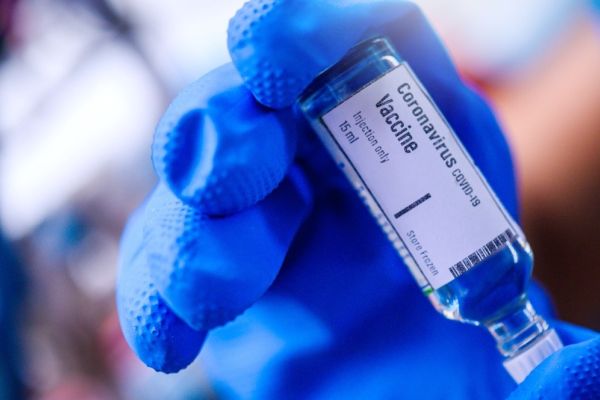Fair and equitable access to COVID-19 treatments and vaccines
Policy Briefing
Published 29/05/2020
This rapid policy briefing highlights the key challenges for policy makers, regulatory bodies, industry, and research institutions to ensure fair and equitable access to a COVID-19 vaccine.
Key challenges
Policy makers, regulatory bodies, industry, research institutions, and funders should create timely strategies for ensuring fair and equitable access to COVID-19 tests, treatments, and vaccines through consideration of the key challenges outlined below.
Underlying all activities in this area should be:
- Recognition of the need for international solidarity and collaboration to share the benefits of research and treatment by avoiding purchasing monopolies.
- Effective mechanisms for collaboration across different sectors working on COVID-19 treatment and vaccine efforts, including industry, government, academia, and charity.
- Strategies for early public engagement and research governance that ensure participant safety.
- Efforts to promote access initiatives such as WHO’s COVID-19 technology pool.
Key challenges for regulatory bodies include:
- Harmonised regulatory regimes that ensure alignment of approaches across different countries to support and accelerate COVID-19 research efforts.
- National and international regulatory environments that facilitate timely and equitable access to treatments by addressing laws and regulation such as commercial confidentiality, data and market exclusivity.
- Robust regulatory reviews that ensure the safety of research participants is not compromised in the accelerated and pressured environment of COVID-19. Ensuring that the benefits of health research that has received public investment is harnessed for the public good and meets patient need.
Key challenges for policy makers include:
- Fair and transparent strategies for prioritising and allocating COVID-19 treatments and vaccines.
- Addressing prevailing health inequalities, and the needs of vulnerable groups, to ensure timely and equitable access to treatment.
- Timely identification of vulnerable groups to enable rapid risk assessment and testing to facilitate access to treatment.
- Support for countries with existing structural barriers to essential healthcare and broader infrastructural problems for public health.
- Review innovation policy regarding just compensation and reward mechanisms that account for risks and costs to encourage investments in rapid industry research, whilst ensuring fair and equitable access to treatments and vaccines.
Key challenges for industry include:
- Patenting policies and intellectual property licensing that focuses on fairness and global public good.
- Transparency and data-sharing through research coalitions to support global efforts to develop safe and efficacious treatments.
- Commitment to initiatives like the Open COVID Pledge to share intellectual property.
- Joining the COVID-19 technology pool established by WHO.
- Transparency in policy-making around drug pricing that ensure fair policies and pricing.
Key challenges for research institutions include:
- Robust research and governance to ensure the safety of research participants is not compromised in the accelerated and pressured environment of COVID-19.
- Early public participation and involvement in COVID-19 research efforts, especially from underrepresented groups.
- Community engagement and initiatives to build public trust for COVID-19 drugs and vaccines, with conversations around public expectations.
Key challenges for other funders of research include:
- Research prioritisation to reflect international need and to contribute to global efforts, in recognition of a moral responsibility towards others which extends beyond territorial boundaries.
- Aligning research questions to meet locally informed needs, especially in LMIC contexts.

Share